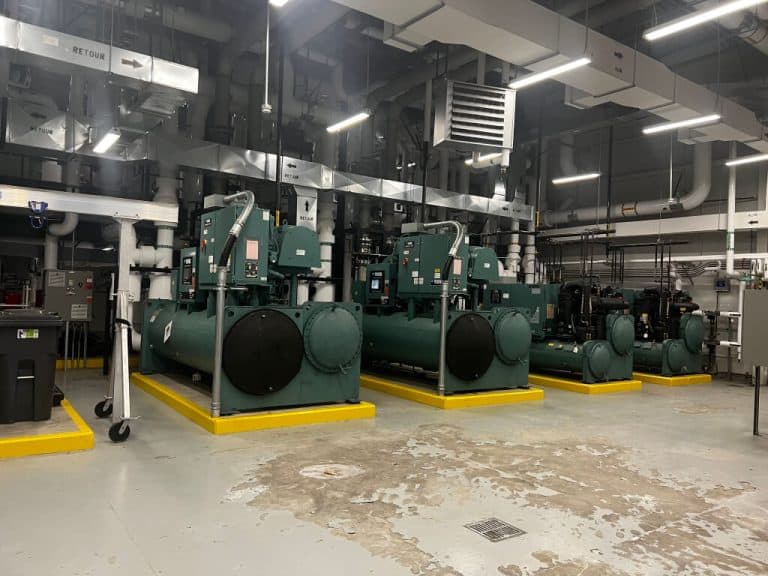24/7 Service - Our experienced technicians are always available to assist you and meet your needs.
Industrial water treatment is a crucial process in various industries to ensure the quality and safety of the water used. This involves the use oféquipement traitement d’eau industrielle and complex processes aimed at purifying and optimizing the use of water resources, while minimizing environmental impacts.
The processes of industrial water treatment, which include filtration, reverse osmosis, disinfection and other treatment technologies advanced. These steps are designed to remove impurities, contaminants, and to adjust the pH levels to meet the specific needs of the industry.
Les équipements de traitement des eaux comprennent les systèmes de filtration, les tours de refroidissement, les stations d’osmose inverse et d’autres installations de traitement de l’eau. Ces équipements sont essentiels pour garantir la qualité de l’eau utilisée dans les procédés industriels.
The industrial water treatment is crucial to ensure compliance with environmental standards, reducing the risks to public health and to optimize the efficiency of the production process. The benefits include the preservation of water resources and the reduction of costs related to the consumption of water.
Industries use a variety of water treatment equipment to meet their specific needs.
The industrial filter are essential to remove particles, contaminants and impurities from the water. They are designed to handle high flow rates and provide a purified water that meets the quality requirements.
Cooling towers are used in many industries to cool the water used in the production process. They are essential to keep temperatures stable and guarantee optimum conditions for the industrial equipment.
The reverse osmosis is a technology that is advanced, widely used in industry to remove contaminants, salts, and other impurities from the water. It is effective to produce water of high purity for various industrial applications.

Each industry presents unique challenges in terms of water treatment, which require solutions tailored to their specific needs.
Le traitement de l’eau pour les centrales thermiques est essentiel pour assurer le bon fonctionnement de ces installations. En effet, l’eau utilisée dans les processus thermiques doit être de haute qualité afin de prévenir l’accumulation de dépôts minéraux et de réduire les risques de corrosion dans les équipements. Pour cela, les centrales thermiques doivent mettre en place des systèmes de traitement de l’eau, tels que la filtration, l’adoucissement et la déminéralisation, pour éliminer les impuretés et garantir un niveau approprié de pureté de l’eau.
In addition, specialized chemicals can also be used to control corrosion and limit the growth of microorganisms in water circuits. Proper water treatment not only extends the life of thermal power plant equipment, but also optimizes its energy performance by reducing losses associated with fouling and corrosion problems.
Water treatment for steam boilers is essential to ensure the efficient and sustainable operation of this equipment. The water used in steam boilers must be treated to remove impurities and prevent the formation of deposits that could clog pipes and reduce boiler efficiency. Water treatment generally involves the use of specific chemicals to neutralize mineral salts, remove suspended particles, and prevent corrosion of metal components.
In addition, regular water quality monitoring is necessary to adjust treatment according to variations in feedwater composition. Ultimately, proper water treatment for steam boilers extends their service life, ensures optimal operation, and reduces maintenance costs.
Water treatment for cooling towers is essential to maintaining the efficiency of these industrial cooling systems. The water used in cooling towers is prone to bacterial and algae growth and mineral buildup, which can clog pipes and reduce the overall efficiency of the system. That is why proper water treatment is necessary to prevent these problems. Water treatment for cooling towers may include the use of chemicals to control bacterial growth and deposit formation, as well as filtration technologies to remove contaminants from the water.
In addition to keeping cooling towers clean and efficient, proper water treatment can also extend equipment life and reduce maintenance costs. It is therefore crucial for industrial companies to implement effective water treatment programs for their cooling towers.
The selection of equipment for water treatment is a crucial decision for any industry, requiring a thorough evaluation of the specific needs and requirements.
The quality of water required, the flow rates, environmental conditions, and regulations are essential factors to take into account when choosing equipment for water treatment.
The installation and maintenance of water treatment require a technical expertise to ensure their proper functioning and durability. Trained professionals are essential to the establishment and maintenance of these systems.
At Gestherm, we can install and maintain your industrial water treatment equipment according to the standards in force in Quebec, in accordance with the recommendations of the Quebec Ministry of the Environment.